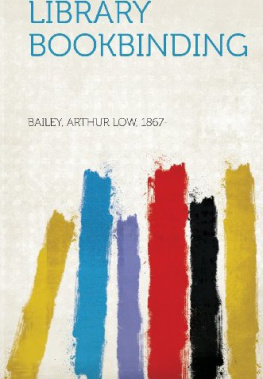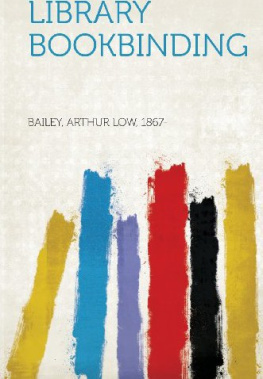LIBRARY NOTES
BY
A. P. RUSSELL
NEW EDITION, REVISED AND ENLARGED
BOSTON
HOUGHTON, MIFFLIN AND COMPANY
The Riverside Press, Cambridge
1882
Entered according to Act of Congress, in the year 1879, by
ADDISON P. RUSSELL,
In the Office of the Librarian of Congress, at Washington.
All rights reserved.
RIVERSIDE, CAMBRIDGE:
STEREOTYPED AND PRINTED BY
H. O. HOUGHTON AND COMPANY.
CONTENTS.
PAGE
I. Insufficiency
II. Extremes
III. Disguises
IV. Standards
V. Rewards
VI. Limits
VII. Incongruity
VIII. Mutations
IX. Paradoxes
X. Contrasts
XI. Types
XII. Conduct
XIII. Religion
LIBRARY NOTES.
I.
INSUFFICIENCY.
It was well said by some one that "in every object there is an inexhaustible meaning; the eye sees in it what the eye brings means of seeing." "Each one sees what he carries in his heart," said Goethe. "You will find poetry nowhere," said Joubert, "unless you bring some with you." "Those who would see or feel the truth of the anatomy in the marble must bring their knowledge with them." "Don't you think that statue indecent?" said Boswell to Johnson. "No, sir," was the reply, "but your remark is." Once, we are told by Hazlitt, when a pedantic coxcomb was crying up Raphael to the skies, Northcote could not help saying, "If there was nothing in Raphael but what you can see in him, we should not now have been talking of him." Douglas Jerrold, it is said, disliked the theatre behind the scenes, and seldom went there save to witness a rehearsal. He would generally attend on the first night of the performance of his piece, but he seldom saw the same piece twice. His idea, as realized, generally disgusted him. He saw it with all the delicate touches rubbed away,a shadow, or a vulgar caricature. His quarrels with actors were incessant, because they would take their idea and not his idea of a part. La Rochefoucauld, in his Maxims, gives us a picture, not of human nature, but of its selfishness. "He works," said Sterling, "like a painter who paints the profile, and chooses the side of the face in which the eye is blind and deformed, instead of the other, which is unblemished. Yet the picture may be a most accurate copy." So do we all. Those of us that see at all see but a small part of anything at a time. Only a line upon the column is distinctly visible; all the rest is hidden, or obscured in the glaring light or eclipsing shadow. A man, especially, must be looked at all around, within, by a fair light, and with a good eye, to be seen truly or judged justly. We put a narrow and fine sight upon him naturally, and can hardly avoid estimating him meanly. We have too much the habit of Fuseli, who preferred beginning his sketch of the human figure at the lowest point, and working from the foot upward. "The wisest amongst us," said the artist and critic, Richardson, "is a fool in some things, as the lowest amongst men has some just notions, and therein is as wise as Socrates; so that every man resembles a statue made to stand against a wall or in a niche; on one side it is a Plato, an Apollo, a Demosthenes; on the other, it is a rough, unformed piece of stone." "Both," said Dr. Johnson of the remarks of Lord Orrery and Delany on Swift, "were right,only Delany had seen most of the good side, Lord Orrery most of the bad." There is a curious life of Tiberius, with two title-pages, both taken from historical authorities; two charactersone detestable, the other admirableof one and the same person; made up, both, of recorded facts. "We ought not," said La Bruyre, "to judge of men as of a picture or statue, at the first sight; there is a mind and heart to be searched; the veil of modesty covers merit, and the mask of hypocrisy disguises malignity. There are but few judges that have knowledge to discern aright to pass sentence; 'tis but by little and little, and perhaps even by time and occasion, that complete virtue or perfect vice come at last to show themselves." "A man," said Emerson, "is like a bit of Labrador spar, which has no lustre as you turn it in your hand, until you come to a particular angle; then it shows deep and beautiful colors." What you think of him depends so much on how you look at him. As a creature of small ways and little achievements, he seems fit only for "stopping a bung-hole;" as an embodiment of every manly trait and of every Christian virtue, he appears indeed "a noble animal, splendid in ashes, and pompous in the grave." The petty tyrant of a family, he satirizes Csar; the canting bigot of the church, he brings reproach upon religion. Now a gentleman, he makes you think of Sidney; now a beast, of Swift's revolting Yahoo. When truly humble and consciously ignorant, he hath the aspect of a child of God; when conceited, dogmatic, aggressive, all the forgotten orthodox teachings of the fate of the hopeless come back to you with the force of apostolic thunder. As the splendid immortal he is destined to be, you hasten to apotheosize him; as the monster he sometimes appears, you wonder that he exists. Burns, who was a master in human nature, characterized woman as "great for good, or great for evil; when not an angel, she's a devil." "There is something still more to be dreaded than a Jesuit," said Eugene Sue, "and that is a Jesuitess." It seems to be nearly impossible to be moderate. If we are calm or deliberate enough to be just, we are almost sure to be indifferent. Our ignorance, our education, our interests, our prejudices, blind our eyes, darken our minds, or drive us to violence. There is nothing half and half about us. The little that we see, we see so differently and so partially, and ignorance finds its complement in feeling. Dryden said of some of the judges of his day, that, right or wrong, they always decided for the poor against the rich; and he quoted a saying of Charles II., that the crown was uniformly worsted in every case which was heard before Sir Matthew Hale. "The eyes of critics," said Landor, "whether in commending or carping, are both on one side, like a turbot's." "Truth, as Humanity knows it," said Bulwer, "is not what the schoolmen call it, one and indivisible; it is like light, and splits not only into elementary colors, but into innumerable tints. Truth with Raphael is not the same as truth with Titian; truth with Shakespeare is not the same as truth with Milton; truth with St. Xavier is not the same as truth with Luther; truth with Pitt is not the same as truth with Fox. Each man takes from life his favorite truth, as each man takes from light his favorite color."
Perhaps that which astonishes us most, when we fairly open our eyes upon the world, is the diversity in everything. Out in the forest, under the spreading tree, looking up at the luxuriant foliage, you may not think of the difference between the leaves; but pull down a limb, and spend an hour comparing them; you find, much as they resemble, that no two are precisely alike. Examine the plumage of the owl that you cruelly brought down with your rifle; every feather of his beautiful dress differs from every other; and, what is more remarkable, every fibre of every feather is another feather, still more delicate, differing from every other, all of which together yield to the pressure of your hand like floss silk. No wonder he fell upon the mischievous mole or mouse as noiselessly as the shadow of a cloud. Go down to the sea-shore; the tide is out; there is an apparent waste of white sand, a dull extent of uniformity; but stretch yourself on the beach, which the innumerable differing waves have beaten to incomparable smoothness, and examine leisurely, with a good glass, a few hundred of the infinite grains which you thought to be the same, and you discover that they differ, that each is differently shaped, each holds the light differently, and, what is more wonderful than all, each appears to be a shell, or part of a shell, which was once the abode of a creature, and a different creature from every other inhabiting or that ever inhabited any other shell of the ocean. Look into the crowded street; the men are all men; they all walk upright; they might wear each other's clothes without serious inconvenience; but could they exchange souls? "Clothe me as you will," said Sancho, "I shall still be Sancho Panza." "The soul is not twin-born, but the only begotten." "And there never was in the world," said Montaigne, "two opinions alike, no more than two hairs or two grains. The most universal quality is diversity."








